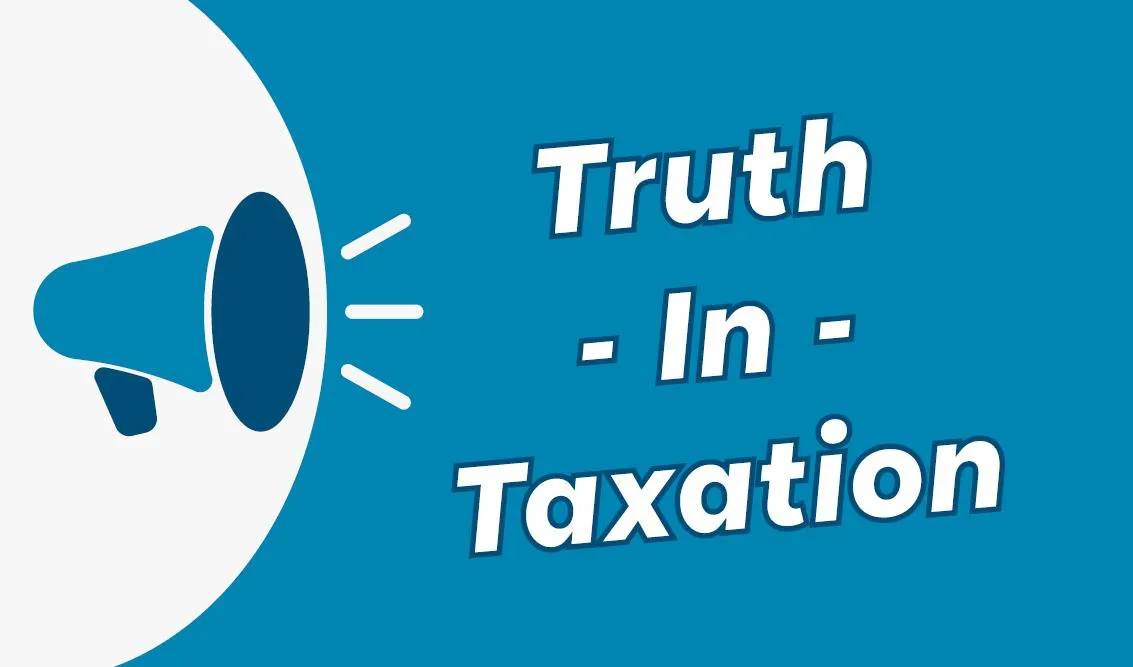
My thoughts on codifying truth in taxation
Codifying Truth in Taxation: A Good Idea with Some Real Drawbacks
At the most recent Harrisville City Council meeting, the council voted to codify an annual Truth in Taxation hearing, meaning the city will now hold one every year—even if no property tax increase is being proposed. On the surface, this sounds like a move in the right direction. More transparency. More accountability. More opportunities for public input.
I’ve taken some time to read through Ordinance 564, the ordinance that establishes this annual requirement. After weighing the language and the broader implications, I wanted to share a few of my thoughts—not just as someone who cares about good government, but as someone who values open and honest conversation about how decisions impact our community.
And I’ll say this up front: I support transparency and open communication in government. I believe the public should be given every chance to understand how their tax dollars are being used and to voice their opinions on budgetary matters. So the idea of an annual Truth in Taxation hearing has merit that I am optimistic about.
But like many ideas in government, the value is in the execution—and there are some real concerns worth noting.
Why Codifying a Yearly Hearing Might Be a Good Thing
1. It Creates a Reliable Forum for Citizens to Engage
People often say they feel left out of government decisions. A yearly hearing sets a clear, recurring time when residents can come, ask questions, and get answers about the city’s finances. It’s an opportunity for direct dialogue between taxpayers and their elected officials, but only if there is discussion on both sides.
2. It Builds a Culture of Transparency
Codifying the hearing keeps it from being a “sometimes” thing. It becomes a permanent fixture in our civic calendar—regardless of who’s in office or what the budget looks like. That consistency can build public trust.
3. It Encourages Fiscal Discipline
If city officials know they’ll have to explain the budget publicly each year, it might encourage more careful, thoughtful spending. It’s a subtle check that reminds everyone their decisions will be reviewed and questioned. Accountability is what citizens should expect of their elected officials and the city employees.
But There Are Cons We Need to Be Honest About
1. It May Cause Unnecessary Alarm
The term “Truth in Taxation” carries a lot of weight—and for many residents, it signals a pending tax increase. Holding this hearing every year, even when no increase is on the table, might confuse or worry people unnecessarily. We may inadvertently foster distrust rather than clarity.
2. It Could Lead to Hearing Fatigue
If the hearing happens every year with no meaningful changes, people may stop attending or paying attention. It risks becoming a rubber-stamp formality instead of a meaningful conversation. When everything is always an “emergency,” nothing really is.
3. It Requires Time and Resources
Even when there’s no new tax proposal, city staff will need to prepare reports, publish notices, and organize the meeting. This costs time and money—both of which are limited resources in a small city. We should consider whether this effort is always warranted.
4. It Could Be Politicized
While the hearing is meant to inform the public, it also opens the door to political theater. In election years, it could become a stage for showmanship rather than substance, with less focus on the actual facts and more on personal agendas.
Finding the Right Balance
I truly believe in government that listens, explains, and includes the people it serves. So again, the intent behind codifying annual Truth in Taxation hearings is good. But good ideas need good implementation—and a clear understanding of potential pitfalls.
If we’re going to do this, let’s do it well. Let’s make sure these hearings are educational, not alarmist. Let’s make sure the public knows what to expect, and that participation is meaningful—not just ceremonial. And let’s make sure we’re not burning time and resources when there’s no actual change to report.
Because in the end, transparency is only as valuable as the clarity it brings.
As a candidate for Harrisville City Council, I believe in open dialogue, responsible leadership, and thoughtful policy—not just good ideas, but good execution. If you'd like to learn more about where I stand on the issues that matter to our city, I invite you to visit my campaign page or reach out with your thoughts. Together, we can make sure Harrisville's future is built on transparency, accountability, and community trust.